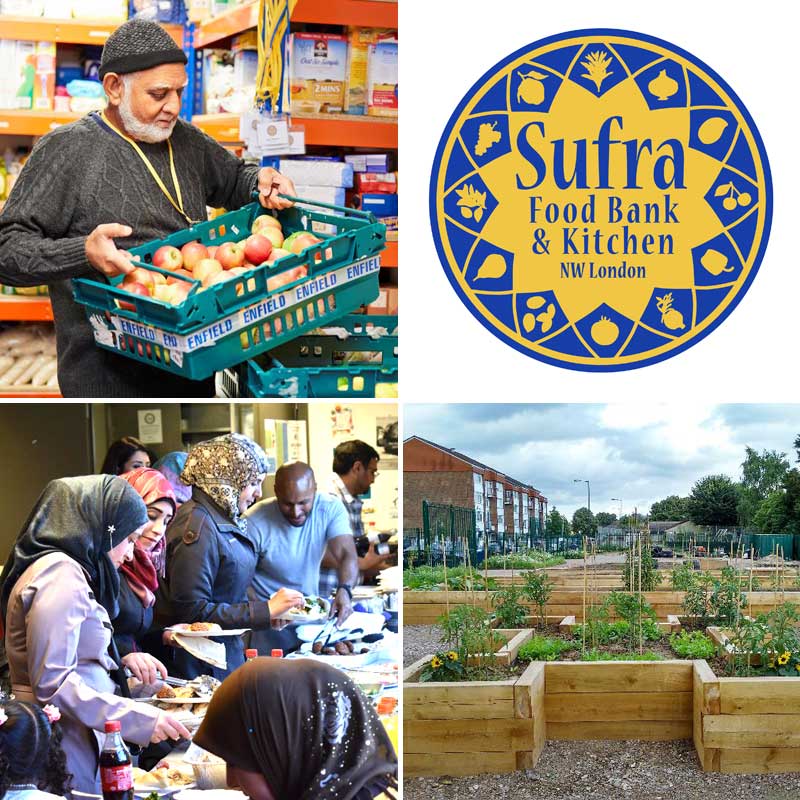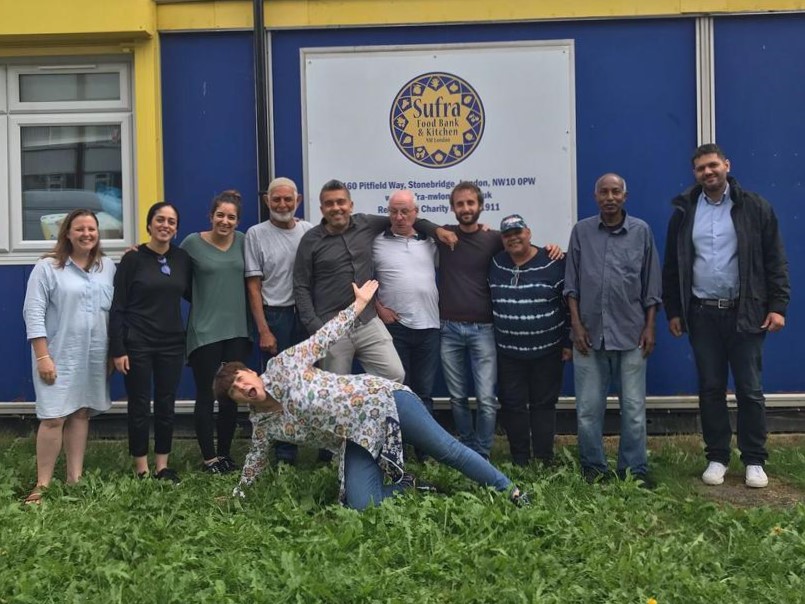“Our kitchen is magic, it feels like a family home”. Sufra, in many Middle Eastern and North African countries, is a tablecloth laid before shared meals. The name alone is a testimony to the important community building work that Sufra NW London, a local charity, do.
A heartfelt testimonial on their website by former Food Bank guest, Rui, reads:
“Coming from a very dark place and on the brink of homelessness, Sufra gave me the confidence and support I needed to start my journey back to the ‘real’ world. Believe me, a bowl of soup and a shoulder to cry on in the right place goes a long way. And Sufra NW London is that place.”
We at Right to Remain are always seeking out grassroots groups who are active in the migration justice sector, to raise awareness for their work. To us, these grassroots groups embody radical solidarity – they give us hope and faith in our communities. So, in this series – In Search of radical solidarity – aims to raise the profile of these groups, so we can learn the true meaning of radical solidarity from each other.
With this in mind, we sat down with Zena Kazeme, Senior Refugee Resettlement Officer, and Sarah Abbas, OpenARMs Assistant, to hear more about the important work that Sufra do.
Sufra’s mission is to “provide food aid, welfare advice, and training to people in crisis, whilst working with the wider community to campaign for an end to poverty”. Originally a food bank and kitchen, Sufra responded to the local needs and grew to a provide a number of services such as ESOL classes, advice, and refugee support. Nevertheless, Zena tells us that food is an integral part of Sufra’s work:
“We give everyone that comes to our door access to food, and from there they can decide if they would like to access our other forms of support too. Someone might not know their rights, but they know that their children are hungry and in need of food, because everyone understands hunger.”
St Raphael’s Edible Garden, in particular, is an important feature of Sufra’s work. The community garden emerged from a campaign by residents to develop a food-growing project for the local community. The garden not only acts as a place for food, but a place of therapeutic comfort for people. Zena shares an anecdote about how important the garden is for the community:
“I remember I took a lady to the garden, who was having a really difficult day. She had lost some of her family to conflict back home, and was in the UK alone with her children. She picked a fig from our fig tree – she told me it was the first time she had eaten something she picked with her own hands since leaving her family’s farm. It meant so much to her.”
Sarah tells me that she feels Sufra adopts a unique approach: “There is a different aspect to our relationship with our guests, its not transactional and there is no hierarchy. Our guests feel like they have a place in the organisation, because they are Everyone is at a level – we are all here to build something together. We wouldn’t be able to exist without them, and they would not be able to carry on if we didn’t exist.”
An important feature of Sufra’s work is the agency that people seeking asylum have, and the confidence they can gain from becoming volunteers. Sarah tells us, “People come in as service users, our guests, and then they become volunteers, and give back to asylum seekers. They’re trapped in small rooms, have no access to anything and their lives are on hold until they’ve got a [asylum] decision. For them, volunteering is a lifeline because they get to come outside everyday, have a purpose and build community.”
What does radical solidarity mean to Sufra?
“The fact that people know we are here, whatever happens, they know they can come to our drop-ins or food bank. We don’t turn anybody away from our door.
You can’t give [our guests] what they want, because they want their refugee status, their right to work, asylum support. But what we do give them is a sense that they are heard, supported and have people that will stand with them. We are a safe space that welcome asylum seekers, in a very hostile environment.
Our staff approach our work with an ‘everyone deserves help’ mentality. Everyone has a right to shelter, to food, and to comfort. This ethic is always at the core of our work.
We grow as our community grows.”



















Discussion: